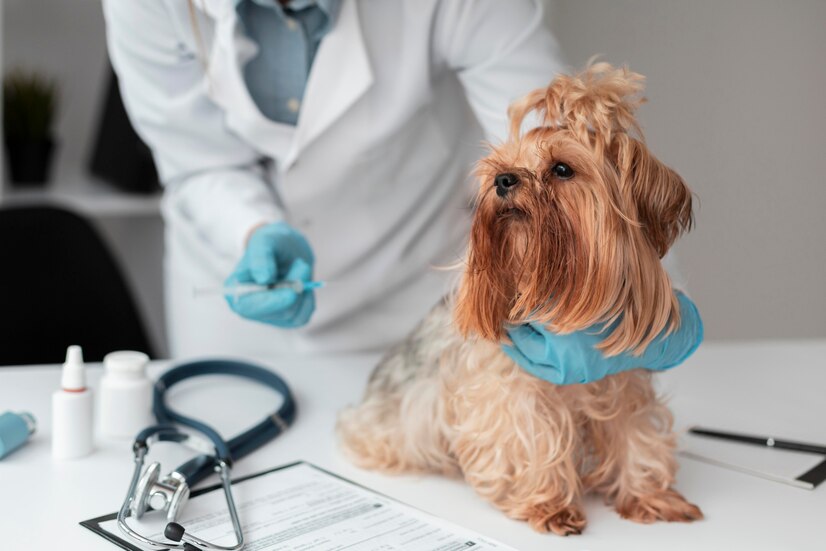Table of contents
CBD (cannabidiol) has taken the wellness world by storm, and its popularity has extended beyond humans—pet owners everywhere are turning to CBD for pets to manage everything from anxiety to joint pain. But before giving CBD to your furry companion, it’s crucial to understand the legal landscape surrounding its use.
In this blog post, I’ll explore the complex legalities of CBD for pets, including federal and state laws, veterinary regulations, and product considerations. Whether you’re a dog lover, cat parent, or livestock owner, this guide will help you make informed decisions.
What Is CBD and Why Are Pet Owners Using It?

CBD is a naturally occurring compound found in hemp and cannabis plants. Unlike THC, CBD is non-psychoactive and is believed to provide calming and anti-inflammatory effects. Many pet owners use CBD for pets to support:
- Anxiety and stress
- Arthritis and joint issues
- Seizures
- Appetite loss
- Skin allergies and inflammation
While anecdotal evidence and some early studies support its use, the legalities and regulations around CBD for pets are still evolving.
Is CBD for Pets Legal?

The answer is: it depends—on the type of CBD, your state laws, and how it’s marketed.
1. Federal Law Overview
Under the 2018 Farm Bill, hemp-derived CBD (containing less than 0.3% THC) is federally legal in the United States. However, the FDA has not approved CBD for use in pets. This means:
- It cannot be marketed as a treatment or cure for pet illnesses.
- Veterinary professionals are limited in what they can recommend.
- CBD pet products fall into a legal gray area.
2. State Laws Vary
Some states allow broad use of CBD, while others are more restrictive. In California, for example, veterinarians are now permitted to discuss CBD with pet owners. Meanwhile, in Idaho, CBD products must contain 0% THC to be legal, making many pet CBD products illegal.
Always check your local laws and consult with a vet who understands cannabis regulations in your state.
3. Veterinarian Restrictions
Many veterinarians are legally prohibited from recommending or prescribing CBD for pets, even if they personally support it. This is because:
- CBD is not FDA-approved for animal use.
- Licensing boards in some states impose penalties for discussing non-approved treatments.
However, more veterinary associations are advocating for change, pushing for clearer regulations and research-based guidelines.
Labeling and Quality Control Concerns
Another legal concern involves mislabeling and product safety. Since the pet CBD market is unregulated, not all products are created equal. Legal CBD products for pets should:
- Be derived from hemp (not marijuana)
- Contain less than 0.3% THC
- Be third-party tested for purity and dosage accuracy
- Avoid misleading health claims (e.g., “cures cancer”)
Buying from reputable brands ensures your pet’s safety and keeps you on the right side of the law.
Traveling with Pet CBD
Taking CBD across state lines, especially for your pet, can be tricky. Although hemp-derived CBD is federally legal, you may still encounter issues at:
- Airports (TSA agents may confiscate CBD or ask for proof of THC content)
- State borders with stricter CBD laws
- International travel, where CBD is illegal in many countries
When in doubt, bring lab reports, original packaging, and consult your vet before traveling with pet CBD.
The Future of CBD for Pets
Regulations are slowly catching up to the demand. Studies are underway to examine the effectiveness and safety of CBD in animals, and new legislation may soon allow for more open discussions between vets and pet owners.
If you’re considering CBD for your pet, advocate for better laws by supporting legislation and organizations promoting animal wellness and cannabis research.
FAQs About CBD for Pets
Yes, as long as the CBD is hemp-derived and contains less than 0.3% THC. However, it’s not FDA-approved, so consult your vet before using.
It depends on the state. Some states, like California, allow it. Others restrict or prohibit vet recommendations due to lack of FDA approval.
Yes. Improper dosing, contamination, or THC levels above 0.3% can be harmful. Always choose lab-tested, pet-formulated products.
Look for hemp-derived products with less than 0.3% THC, third-party lab results, clear dosage instructions, and no medical claims.
Traveling within the U.S. with legal CBD is generally safe, but check state-specific laws and avoid international travel with CBD.
Final Thoughts
Understanding the legalities of CBD for pets is essential before adding it to your animal’s wellness routine. Although it holds great promise, the lack of regulation means pet owners must be cautious, informed, and proactive. With more research and clearer laws, CBD may soon become a widely accepted supplement in veterinary care.
Until then, always consult your vet, choose high-quality products, and stay updated on federal and state legislation. When used responsibly and legally, CBD for pets can be a powerful tool in promoting health and balance for our beloved companions.





